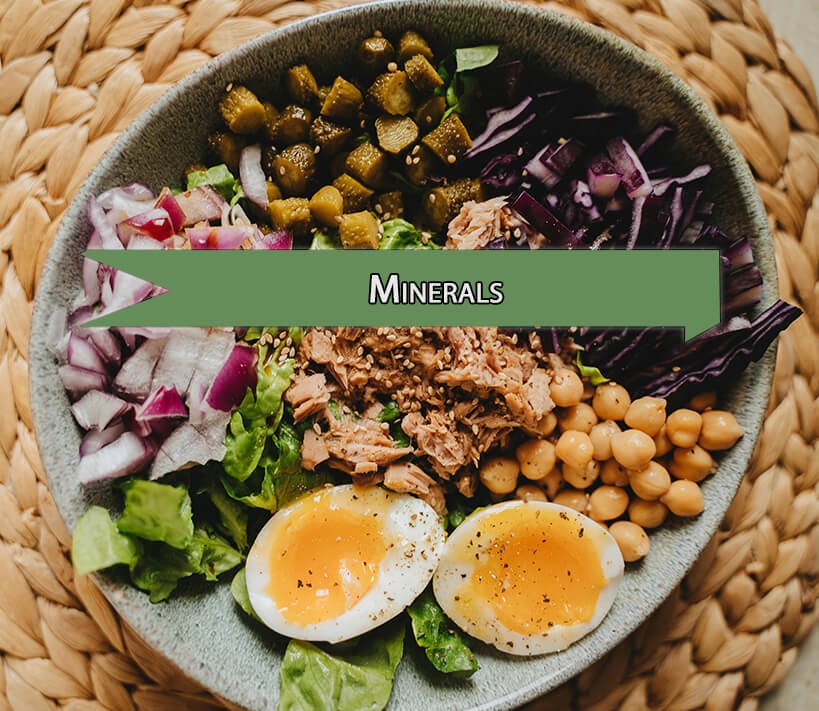Nowadays, almost everyone is facing some form of mental health challenge, whether it is anxiety, depression, or stress. To cope with these issues, many people are turning toward natural approaches to feel better. While therapy and medication remain essential tools in managing mental health, minerals also play a supportive role. These natural nutrients, found in our everyday diet, help balance brain chemistry, regulate hormones, and calm the nervous system. At Psychoaura, we believe in integrating these holistic elements to promote mental well-being from the inside out, encouraging sustainable healing, emotional resilience, and overall mind-body harmony.
In this blog, we will discuss some essential minerals that help alleviate anxiety, depression, and stress.
Magnesium the Master Calmer
Magnesium is often referred to as nature calming agent. It helps relax muscles, soothe the nerves, and reduce cortisol, the stress hormone. It also plays a role in regulating serotonin, which is a natural mood stabilizer. People with low magnesium levels often experience anxiety and sleep problems. Food like avocados, almonds, black beans, and pumpkin seeds helps replenish magnesium levels in the blood. Including magnesium-rich foods in your daily diet can improve sleep quality, boost emotional stability, and support a calmer, more balanced mental state.
Zinc: The Brain Silent Partner
Zinc may not get much attention, but it is essential for mental clarity and emotional stability. It works by balancing key brain chemicals, such as GABA and dopamine, both of which play crucial roles in regulating mood and managing stress. A zinc deficiency has been linked to increased anxiety and depression. Foods like chickpeas, lentils, beef, cashews, and pumpkin seeds are beneficial sources of zinc that support emotional well-being. Including zinc-rich foods in your diet can enhance focus, reduce irritability, and improve your brain ability to handle everyday emotional challenges effectively, fostering greater resilience and long-term mental balance.
Iron: The Energy and Mood Booster
When iron levels drop, our energy and mood often drop as well. This happens because iron is essential for transporting oxygen to the brain and supporting the production of mood-boosting neurotransmitters. Low iron levels, especially in women, can lead to fatigue and increased anxiety. Adding iron-rich foods like red meat, spinach, tofu, lentils, and fortified cereals to your diet can help improve both physical energy and emotional well-being. Maintaining healthy iron levels also supports better concentration, reduces brain fog, and enhances your body ability to manage daily stress, making it easier to stay mentally resilient and balanced.
Calcium: More than Just for Bones
Calcium is most commonly associated with bone health, but it is also recognized for playing a key role in stabilizing mood. It is involved in proper nerve function and helps regulate mood swings, especially those related to PMS. Foods such as dairy products, leafy greens, almonds, and calcium-fortified plant-based milks are recommended to help maintain adequate calcium levels.
Additionally, calcium one of the essential minerals is often overlooked in mental health care, even though it supports emotional balance and helps reduce irritability. You can experience its full benefits by consuming it consistently as part of a well-balanced diet.
Potassium: The Heart and Mind Balancer
Potassium helps regulate heartbeat and nerve signals and prevents the jitters associated with stress. A steady potassium level can reduce symptoms of anxiety and support muscle and nerve function. Reach for bananas, sweet potatoes, oranges, Spanish and beans.
Selenium: The Antioxidant Defender
Oxidative stress damages brain cells and often triggers mental health symptoms. Selenium plays a key role in fighting stress because it acts as a powerful antioxidant. Research shows that people with higher selenium levels experience lower rates of depression. Eating a few Brazil nuts daily, along with foods like tuna, sunflower seeds, and eggs, helps meet the body selenium needs. Experts increasingly recognize selenium role in supporting cognitive health and emotional resilience, especially in nutrition-based approaches to mental well-being.
Manganese and Chromium: The Unsung Heroes
Manganese helps enzymes that build neurotransmitters, while chromium supports blood sugar balance, which has a direct impact on mood. Together, they offer subtle but powerful support for stress management. Whole grains, tea, nuts, broccoli, and tomatoes are excellent sources. Including these minerals regularly in your diet can improve mental clarity, stabilize emotional responses, and promote long-term overall brain health.
Conclusion
Mental Health Challenges affect many of us, and while therapy, medication, and lifestyle changes are essential, the role of minerals in emotional and cognitive balance is often overlooked. Minerals such as magnesium, iron, zinc, and selenium play a crucial role in supporting brain health, regulating mood, and building resilience to stress. At Psychoaura, we believe in a holistic path, one that values the healing power of nutrition alongside professional care. By being intentional about what we eat, we nourish both mind and body. Even small dietary changes can make a significant impact. Sometimes, the journey to inner calm and emotional clarity begins with your next meal.




